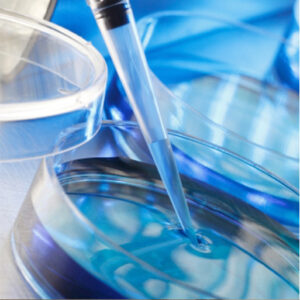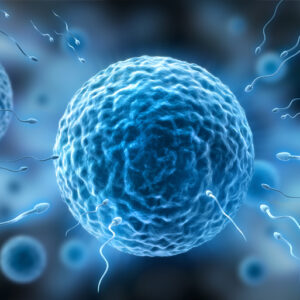Your Treatment
We offer a full range of services from diagnosis of infertility; to specialist fertility surgery; assisted conception treatment and pre-implantation genetic diagnosis. Please use the menu below to browse through our full range of treatments.


IVF & ICSI
Genetic Services
Need A Donor?
Fertility Preservation
Surrogacy
Other Treatments
IVF & ICSI
IVF: In Vitro Fertilisation
Who needs IVF?
In vitro fertilisation (IVF) is suitable for any situation where there is a problem bringing eggs and sperm together, e.g.:-
Women with blocked or damage fallopian tubes
Some couples with unexplained infertility,
Some forms of male infertility, and others where there is a problem bringing eggs and sperm together.
What is IVF?
IVF literally means fertilisation ‘in glass’ hence the familiar name of ‘test tube baby’. Eggs are removed from the ovaries and fertilised by sperm in a laboratory dish and the resulting embryos are placed into the woman’s womb.
What does it involve?
For her – IVF involves taking fertility drugs which are tailored to your individual needs. Your own hormone production is temporarily switched off and your ovaries are stimulated to produce more eggs than usual. The development of the eggs is monitored by regular ultrasound scans. When the eggs are ready to be released, you will have a minor operation to collect them (egg collection).
For him – You will be asked to produce a sperm sample at the clinic on the day of the egg collection which are washed and prepared for mixing with the eggs.
What happens next?
The eggs are mixed with sperm and left to fertilise. After two or more days, one or two embryos are placed in your womb. Any other good quality embryos may be frozen and stored for your future use.
ICSI: Intra Cytoplasmic Sperm Injection
Who needs ICSI?
Couples where the male partner has a low number of normal, motile sperm.
Couples who have previously experienced failure of fertilisation with IVF
Couples where the male partner has previously stored sperm and the quality/numbers are not suitable for IVF
Women whose eggs have previously been frozen
Intra-Cytoplasmic Sperm Injection (ICSI) is a technique that has been developed to assist fertilisation using very few sperm. If sperm quality is poor, either due to low numbers, or because they do not swim very well, or are not able to penetrate the barriers surrounding the egg.
What does it involve?
ICSI follows the same pathway as IVF. The only difference is in the insemination procedure. A single sperm is injected into each egg as opposed to adding prepared sperm to the eggs as in IVF.
Genetic Services
Pre-implantation Genetic Diagnosis (PGD) is a method by which inheritance of serious, debilitating genetic problems can be avoided. Embryos are brought about by IVF or ICSI, and tested to check whether they carry the genetic problem. Only those that are clear of the problem are transferred.
Depending on the circumstances of individual patients, funding may be available for this procedure.
Need A Donor?
Who Needs Donated Eggs?
Egg donation may be suitable for women who :-
Have had an early menopause
Have no ovaries or had them removed
Have had cancer treatment which has damaged the ovaries
Are producing few or low quality eggs
Have a high risk of passing on an inherited disorder
What does this treatment mean?
Eggs from another woman are fertilised with your male partner’s or donor sperm and implanted into your womb.
Ways to find a donor
There is a shortage of egg donors which means you may have to wait two years or more to be matched with a suitable donor.
Alternatively, ask a friend or relative to donate their eggs, either directly to you or anonymously to someone else on the waiting list, you will then automatically go to the top of the waiting list for the next suitable anonymous donor.
Compensated Egg-Sharing
If you are not eligible for NHS funding (see funding), one way of helping to pay for IVF/ICSI treatment is through egg sharing . Egg sharing means you would get your treatment at a heavily subsidised price. In return you agree to share your eggs with an anonymous recipient.
To be an egg sharer you must be generally fit and healthy, aged 18 to 35 years, non-smoker, free of any serious medical problem, disability, congenital or hereditary disease and not severely overweight for your height.
Using Donor Sperm
You may require donor sperm if:
Your partner has low quality or no sperm
To avoid passing on a heritable disease
You are a single woman or same sex couple
Sperm donors are recruited from a wide range of backgrounds. They are required to be fit and healthy, with no family history of hereditary disease.
Donors are screened for a variety of infectious conditions, including HIV and hepatitis, and for some genetic conditions, according to national guidelines.
As far as possible we try to match donor characteristics to the patient’s requirements, ethnicity, skin, hair/eye colour, height etc.
Donor sperm can be used in conjunction with : Artificial insemination, IVF & ICSI
Fertility Preservation
Egg Freezing
Who needs egg freezing?
Egg freezing is available to women whose capacity to produce eggs is under threat, other than from the natural ageing process.
Some treatments for cancer and other serious conditions may affect the store of eggs in the ovaries or the function of the ovaries themselves. Egg freezing before treatment before such treatment takes place may make it possible for women to have children using their own eggs. *
Women who suffering from any condition that may lead to premature ovarian failure, and, as a result, infertility, may also consider egg freezing.
Finally, egg freezing may be used as an emergency procedure for couples undergoing IVF, if the male partner is unable to provide sperm at the time of treatment.
*It is necessary to stimulate the ovaries so that enough eggs develop for freezing. In some cases there is a risk that the drugs involved will make the cancer worse, in which case egg freezing would not be possible
What does egg freezing involve?
In order to collect enough eggs to freeze, women must undergo drug treatment to stimulate their ovaries, in the same way as women undergoing IVF treatment. This takes two to five weeks.
The eggs are then collected under general anaesthetic. Only eggs that are mature, i.e. are ready to be fertilized, can be frozen.
When the eggs are required for treatment, they are thawed and fertilised using ICSI in order to give the maximum chance of fertilisation. However, you must bear in mind that freezing eggs does not guarantee future successful fertility treatment.
How long can eggs be stored?
You may store your eggs for 10 years, but under certain circumstances this can be extended to 55 years.
Funding
In some areas funding is available for fertility preservation. Your GP or oncologist should be able to tell you if this is the case.
Sperm Freezing
Who needs sperm freezing?
Men who are having treatment that might impact on their future fertility, e.g. chemotherapy or radiotherapy, urological surgery, vasectomy.
Men with low sperm counts whose partners are going to have ICSI treatment, may be advised to freeze sperm as a back up.
How long can sperm be stored?
Sperm are initially stored for 10 years, but storage may be extended to 55 years in certain circumstances.
How do I use my sperm in the future?
Frozen sperm is usually used in conjunction with IVF or ICSI, depending on the quality and post thaw survival.
Surrogacy
Surrogacy involves the transfer of embryos created using the eggs and sperm of a couple undergoing treatment, into the womb of another woman, the “surrogate” and is carried out when for some reason a woman cannot carry a child herself.
The centre will consider surrogacy on a case-by-case basis. You would need to find your own surrogate as we cannot do this for you. Further information is available on application.
Other Treatments
Artificial Insemination with partner’s sperm
This is a technique that is occasionally recommended used for couples with ‘unexplained’ infertility. The procedure ensures that sperm are present at the time of ovulation, with the added advantage that the sperm are prepared and selected.
This procedure is carefully co-ordinated with the woman’s cycle. The husband / partner is asked to produce a semen sample on the day of treatment, which is prepared and used to inseminate the female partner. Depending on the female partner some mild ovarian stimulation may be used.
Surgical Sperm Retrieval
When there are no sperm in the ejaculate, sperm can sometimes still be recovered from the testicles by an operation. There are a variety of techniques:
PESA (Percutaneous Epididymal Sperm Aspiration) – A fine needle is inserted into the epididymis (the sperm reservoir) at the upper area of the testicle and any sperm will be drawn through the needle into a syringe.
TESA (Testicular Sperm Aspiration) – A fine needle is inserted into the testicles and any sperm are drawn through the needle into a syringe.
TESE (Testicular Sperm Extraction) – If few or no sperm are obtained from the above procedures a biopsy (tissue sample) is taken from the testicles through a small incision. After the procedure 2–3 sutures are placed in the skin, these will dissolve after about 10 days.
These procedures are carried out either under local or general anaesthetic. The sperm can be used either for diagnosis, immediate treatment or frozen for use in future treatments.
Sperm obtained from this procedure normally need to be used for ICSI treatment.
